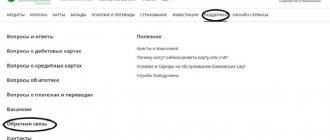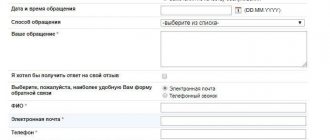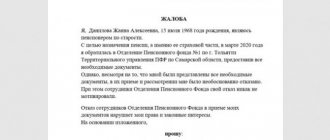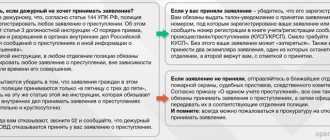Very often, the prosecutor's office becomes the last authority to which you can file a complaint about a violation of existing federal laws or the personal rights and freedoms of citizens. It is a supervisory body that monitors violations of the law and controls the activities of not only state and other organizations, but also local administrative institutions.
There is a procedure for citizens to file complaints and statements. According to the requirement of Article 8 of Federal Law No. 59, the appeal is sent to the body whose competence includes consideration of this message on its merits.
If you consider yourself a victim, then you need to write a statement to the supervisory organization under whose control the unlawful actions of your offender fall.
So, for example, in case of deception, body kits in stores, the sale of faulty equipment or substandard goods, you need to complain to Rospotrebnadzor. This will be the first authority to respond to your complaint. The situation is the same with the protection of rights regarding the safety of personal data, supervision of banking activities, the work of bailiffs, labor inspection, and so on. Each structure has its own regulatory body.
If the responsible persons do not fulfill the powers assigned to them or citizens do not agree with the resolutions adopted by the executive bodies in response to their application, the victims can appeal the decision.
Where to complain if the prosecutor's office is inactive
But what if supervisors ignore citizens’ appeals about violations of their rights? Where can I complain about the inaction of the city prosecutor's office? There are cases when government agencies appointed to monitor compliance with the law themselves violate it. There are two options:
- filing a complaint with a superior employee;
- drawing up a judicial statement.
To file a complaint, you need evidence of unlawful actions by the prosecutor (a copy of the response to your appeal, testimony of witnesses).
If you draw up a statement of claim to appeal the actions of law enforcement agencies in court, you need to write how your rights were violated by employees of supervisory authorities.
The court, having considered your complaint, may issue a resolution to cancel the decision made earlier by the prosecutor's office and punish the official guilty of violating the law. If the court does not find evidence of violation of your rights by law enforcement officials, it may refuse to satisfy your claims. You will have 10 days to file a cassation appeal to a higher authority.
How to submit
When you have chosen the body to which you are going to file a complaint, you need to find out its details, the name of the person authorized to consider the complaint, address and reception schedule. Filing a complaint to any of the prosecutorial authorities is possible in three standard ways:
- By mail – a registered letter with notification attached with copies of evidence. To do this, you will need to print your complaint in accordance with all the rules and send it to the appropriate address of the regional unit or the Prosecutor General's Office. A map of the divisions can be found here: https://www.genproc.gov.ru/contacts/map/?DISTR=&SUBJ=;
- In person - two copies of the complaint and copies of documents can be given to the secretary or authorized person at the reception at the prosecutor's office unit that you have chosen to apply. In some of them, reception is carried out by appointment, so it is necessary to clarify the schedule and conditions for accepting complaints against lower authorities. You should be given a note on one of the copies indicating that the appeal has been registered with the authority;
- Via the Internet - the main Internet reception of the General Prosecutor's Office is located at: https://ipriem.genproc.gov.ru/contacts/ipriem/. Before registering an appeal, you will be given the opportunity to familiarize yourself with the terms of submission and will be informed that if the problem can be resolved at the level of regional prosecutors' offices, the appeal will be forwarded within the prescribed period. Otherwise, you have the right to file a complaint in this way, attaching scanned and digitized evidence of the prosecutor’s inaction on your issue. The complaint will be treated as a regular complaint.
This is important to know: How to file a complaint with the prosecutor’s office via the Internet
to contents
Where to complain about the district prosecutor's office
To understand where the violation of your rights by employees of the prosecutor's office occurred, you need to have an idea of the work of the state supervision apparatus.
Each structural unit has established a hotline for citizens to contact them. Applications are registered and reviewed. The response is sent by mail or delivered in person. To apply for protection of their violated rights, a person can send an appeal in writing or use e-mail and contact through the Internet reception.
The prosecutor's office has installed boxes for receiving citizens' requests, mail is taken out of them regularly, a special stamp is placed on the correspondence, and the date is indicated. Then it is registered and submitted for review. The prosecutor on duty receives citizens every day. You can track the fate of your appeal by calling the reception or office. You should be told which structural unit is considering your application.
If the application has not received a conclusion from an authorized supervisory body, the city prosecutor's office makes a decision to forward this appeal to the appropriate supervisory body to consider your complaint. 7 days are allocated for this. The law provides for sending a request both with and without control, depending on the situation or severity of the problem. There are deadlines for processing an application. If the deadlines or the rights of a citizen are violated by employees of the main supervisory body, rules have been established for appealing the actions of the prosecutor's office.
Appeal procedure
The procedure for filing complaints against prosecutors and employees is regulated by Order of the Prosecutor General No. 45 of January 30, 2013.
The instructions on the procedure for citizens to contact the prosecutor's office provide for a mandatory procedure for considering complaints by lower authorities before filing a complaint with the Prosecutor General's Office.
At the same time, appeals from citizens that were not considered by the heads of lower-level prosecutors' offices are sent to them within 7 days for verification and preparation of a response to citizens.
The application will not be considered if:
- the text of the message contains obscene language, insult, threat to life and health;
- the text is not readable, is not divided into sentences;
- the text of the complaint is written using Latin or capital letters;
- the address is incorrect;
- There is no information about the applicant.
Figure 3. Prosecutor General's Office. Source: Tsar Grad website
Where to complain about the city prosecutor's office
If you don’t know where to complain about the city prosecutor’s office, you need to use Article No. 10 of Federal Law 171 of July 17, 2009. It directly states that the decision and resolution of the judiciary, the response of the supervisory authority to an appeal or application must be appealed to a higher official.
The same article of the Federal Law prohibits forwarding an application to a responsible person or executive body whose actions the applicant wants to appeal. The article predetermines a reasoned response to citizens’ appeals or complaints.
If the state supervisory authorities decide to refuse the applicant’s complaint, then the prosecutor is obliged to explain to the citizen his rights and the procedure for appealing his decision to higher authorities.
The decision made by the prosecutor does not deprive the applicant of the opportunity to defend his rights in court. Consideration of cases of non-compliance with legislation and violation of rights can be initiated not only by supervisory authorities, but also by personal statements from citizens.
Responsibilities of prosecutors in the Russian Federation
Now let's talk about the main responsibilities of a prosecutor. Art. 27 of the Federal Law “On the Prosecutor’s Office” establishes that when performing the functions assigned to him, each prosecutor is obliged to:
- Consider applications, complaints and other reports of violations of human and civil rights and freedoms;
- Check received applications and complaints;
- Take measures to prevent and suppress violations of human and civil rights and freedoms;
- Bring to justice those who violate the law;
- File and support a claim in court in the interests of the victim (if the victim, for health reasons, age or other reasons, cannot personally defend his rights and freedoms in court).
In addition, prosecutors have the right to use the powers provided for in Art. 22 Federal Law “On the Prosecutor’s Office”:
- Call officials and citizens for explanations regarding violations of laws;
- Make proposals to eliminate violations of the law;
- Demand that persons who violate the law be held accountable as established by law.
Lawlessness of the prosecutor's office: where to complain
To challenge the decision of the prosecutor's office, you must write an application to a higher division of the state supervisory authority (city, regional, regional). The list of requirements for written statements from citizens is regulated by Federal Law. The message must contain:
- name of the government agency, full name of the responsible person to whom it is addressed;
- Full name of the citizen himself;
- applicant's postal address;
- applicant's telephone number (preferably);
- the essence of the appeal (where, when, by whom the applicant’s rights were violated, or the requirements of the Federal Law);
- copies of documents confirming the described arguments;
- requirements for restoration of rights;
- personal signature and date of composition.
When applying in person, you must have two copies of your application with you. You hand over one to the reception or office; on the second copy, the executive secretary puts a stamp on the registration of this application and the date. Article 12 of Federal Law No. 59 states that the time for consideration of a complaint should not exceed 30 calendar days, unless this concerns facts of violations in the field of migration. Then the period is 20 days.
How to file a complaint against a specific employee?
If you were insulted by a specific employee or he violated your rights, then it is not at all necessary to file a complaint against the entire department. The same applies to possible inaction on his part.
In this situation, the complaint is submitted at the same department in the most convenient way for you. However, it is most recommended to submit it in person. In the complaint itself, it is required to indicate the fact of inaction, reasoned and insinuatingly described, as well as indicate the employee against whom the complaint is being filed. You will need to hand over this document to the responsible person who accepts applications.
If the person accepting the applications happens to be the employee against whom you are filing a complaint, then you have the right to contact the most senior employee . And be sure to take a receipt stating that the complaint has been accepted for consideration. It is from the date indicated in it that the waiting period begins. These complaints take up to thirty days to be considered, so you will have to wait for the result.
When an illegal decision is made
What should you do if the state supervisory authority made an unlawful decision on your application or you were not satisfied with the explanation from the prosecutor’s office where to complain under such circumstances?
Officials of the supervisory body who violated the provisions of Federal Law No. 59 are responsible for this. This is prescribed by Article 15 of the relevant Federal Law. The punishment is administrative fines imposed on those responsible for violating the procedure established by the legislation of the Russian Federation for considering citizens' appeals.
If the punishment is insufficient or if administrative fines do not resolve the problem arising from your appeal, you can transfer the decision on the verdict to the judicial authorities. This is where you can become an active participant in the process and influence the course of the trial.
To ensure proper preparation of documents, it is better to use the services of our legal consultants.
Complaint consideration period
Citizens' complaints about the prosecutor's inaction are considered within 30 days (Article 12 of the Law on Consideration of Citizens' Appeals No. 59-FZ).
The period for consideration of written appeals may, in exceptional cases, be extended by another 30 days.
In this case, when an appeal is received by a higher authority of the prosecutor's office without complying with jurisdiction, the period is increased by 7 days, taking into account the time for sending to a lower authority.
If it is necessary to conduct an inspection based on the materials of the criminal case, the necessary documents can be requested and submitted by a lower authority within 15 days.
Where to complain about the regional prosecutor's office
The procedure for appealing the actions of employees of the regional prosecutor's office is the same as in all previous state supervisory bodies. The official website of the General Prosecutor's Office of the Russian Federation indicates the structural vertical of the prosecutor's offices of the constituent entities of the Russian Federation. There is also information about the higher supervisory authority, to whose address you can send a complaint about the improper performance of its direct duties by the regional body.
The appeal must be supported by evidence of a violation of the law, and drawn up in accordance with the rules regulated by the relevant Federal Law. A free legal consultant can assist you in drawing up an application addressed to the chief prosecutor of the organization to which you are sending your complaint.
An appeal that is not drawn up according to the rules, in illegible handwriting, with a vaguely expressed claim, is sent back to the applicant by the prosecutor's office for revision. Therefore, when thinking about where you can complain about the prosecutor’s office and how to properly fill out an application, it would not be a bad idea to resort to the services of competent lawyers.
Article No. 52 of the Constitution of the Russian Federation guarantees citizens the protection of their rights from abuse of power, fair justice and payment of compensation for damage caused.
Decisions of state supervisory authorities can be challenged in court. According to statistics, district courts are reluctant to overturn decisions of the prosecutor's office. Sometimes the process of restoring justice is delayed. Cooperation with a legal consultant is necessary in order not to miss deadlines for filing cassation appeals and to analyze the legislative nuances that come to light during trials.
Causes
The office is in charge of sending letters, and there is no point in hiding answers from applicants. Sometimes abuse on the part of an employee is possible, especially in small prosecutor's offices: he negotiates with the office, which pretends to send a response, but in fact the response is not actually sent. The post office is assigned the culprit in such a situation, and the applicant has to apply again to receive an answer or familiarize himself with the inspection materials. But many applicants simply get upset and do nothing, which is what the unscrupulous employee is counting on. This is a rare situation, but possible.
More often than not, the sent response does not reach the applicant for some other reason.
The answer must be sent in the same way as the letter was sent (as a general rule). If you send a complaint by email, then you should expect an answer in electronic form. Sometimes an employee may make a mistake and send a response by paper letter. When I worked in the prosecutor's office, we often sent a response in both ways if the addresses were known.
Sometimes the applicant indicates an address with an error in the letter, and the response is sent exactly to the address indicated in the appeal. If the complaint is written by hand and in illegible handwriting, then the executor may misread the address of the person who applied.
Where to complain about corruption in the prosecutor's office
If you have noticed cases of employees of supervisory authorities extorting money for terminating an investigation into violations of federal laws or falsifying the results obtained during inspections of such cases, you need to contact a specialized unit of the Prosecutor General's Office of the Russian Federation, which oversees the implementation of anti-corruption legislation.
The same structural units have been created in each constituent entity of the Russian Federation. Their tasks include combating corruption in the sphere of state and municipal services. Employees of the unit investigate cases of bribery among regional and municipal leaders, government supervisors, judicial and supervisory authorities, deputies, etc.
The main vectors of activity of the specialized anti-corruption unit are:
- detection of cases of corruption, verification of facts in identified cases;
- state supervision over compliance with legislation in the conduct of operational investigative activities as a result of the consideration of criminal cases opened to identify cases of corruption;
- maintaining state prosecution in court;
- data collection, research and analysis of the implementation of the anti-corruption law;
- selection of recommendations for improving work based on processing of available data.
On the vulnerability of a prosecutor trying to regain his job
Despite the fact that prosecutors are the elite of the legal community, the practice of the Supreme Court of the Russian Federation has isolated precedents when dismissed prosecutors managed to challenge the orders of the employer. In the vast majority of cases, there is, unfortunately, no chance of recovery.
How justified is such a position of the law enforcer?
Are the main lawyers of our country protected from unjustified dismissal?
In addition to the grounds provided for by the labor legislation of the Russian Federation, a prosecutor’s employee can be dismissed on so-called departmental grounds, which are provided for by the Federal Law “On the Prosecutor’s Office of the Russian Federation”: at the initiative of the manager in case of violation of the Prosecutor’s Oath, as well as the commission of offenses discrediting the honor of the prosecutor’s employee. Law enforcement practice has not developed clear criteria for what is considered a violation of the Oath and when the offense committed is discreditable. Here are the most typical cases:
1. A prosecutor with signs of alcohol intoxication drives a vehicle, gets into an accident, and causes harm to the health of participants in the accident; refuses a medical examination and/or flees the scene of an accident. The courts recognize that the listed acts themselves indicate the commission of an offense that discredits the honor of a prosecutor. For the courts, it is not legally important to establish the guilt of a prosecutor’s employee in an administrative manner. Since, as law enforcers point out, a person’s guilt in committing an offense that discredits the honor of a prosecutor’s employee is established not within the framework of proceedings on an administrative offense, but during the consideration of the corresponding civil case;
2. The prosecutor does not ensure the safety of criminal cases received for verification and in his possession, which leads to their loss. The results of the internal audit are sufficient. A criminal case may not be initiated;
3. Entering into a non-business relationship with a lawyer who promises the accused a reclassification of the criminal charge to a less serious one with subsequent approval by the prosecutor of the indictment. The prosecutor’s arguments that guilt in committing any crime has not been established are not accepted by the courts, since the basis for dismissal is not the circumstances related to the crime, but a violation of the Prosecutor’s Oath, which requires an employee of the prosecutor’s office to uncompromisingly fight any violations of the law who no matter what they commit, preventing their commission in any life situation, be an example of incorruptibility, moral purity and modesty. Since the employee of the prosecutor's office did not notify his superior about the fact that a person approached him with the aim of inducing him to accept a bribe, and did not take any measures to stop the illegal activities of the said person, this undermines the authority of the body authorized to supervise the implementation of federal legislation;
4. The death of the accused, placed in a pre-trial detention center, as a result of the inaction of the prosecutor, empowered by virtue of Art. 39 of the Code of Criminal Procedure of the Russian Federation has the authority to give instructions to the investigator on the issue of choosing a preventive measure, as well as to agree on the issue of changing the preventive measure, but which limited itself to indicating the need to establish the circumstances of the possibility of keeping the accused in custody and did not raise the question of changing the preventive measure. The prosecutor's argument that the state of health of the accused was known to persons who, due to their procedural independence, independently decided on the issue of choosing and changing the preventive measure, did not become the basis for exemption from liability for the violations committed by him, which served as the basis for his dismissal;
5. Providing assistance to third parties in commercial activities or forcing third parties to provide business preferences to relatives of the prosecutor and other forms of patronage and actual participation in related business, illegal interference in the activities of commercial organizations, which damaged the reputation and authority of the prosecutor’s office, which violates the Oath prosecutor and testifies to the commission of an offense that discredits the honor of a prosecutor. The court found the arguments that the initiation of a criminal case against the prosecutor due to the lack of corpus delicti in his actions and, therefore, there were no grounds to believe that he had committed violations, to be unfounded, since this circumstance does not exclude the possibility of bringing the prosecutor to disciplinary liability in the form of dismissal for committing offenses that discredit the honor of a prosecutor;
6. Violation of the procedure for submitting information about property and income; illegal receipt of subsidies;
7. The plaintiff's absence from the workplace without good reason;
8. Unauthorized introduction of changes to the service ID. Arguments about the necessity of unauthorized changes to the service ID in connection with being sent on a business trip and the improper performance of official duties by the personnel service in timely replacement of the service ID were not accepted by the court as legally significant;
9. Entering into off-duty relationships with a convicted person and other persons for selfish purposes and contrary to the interests of the service, as well as receiving monetary compensation for failure to submit an appeal against a decision on parole. The arguments that the very fact of initiating a criminal case against the prosecutor is not a sufficient basis for dismissal from office, since a conviction against him has not been made, the criminal case has not been completed, and his guilt in committing a crime has not been proven, were not legally recognized by the court significant;
10. The prosecutor’s use of his official position to obtain property for close relatives who did not have the right to receive it free of charge and were not in line for this with their subsequent sale and profit; failure to take measures to counter the illegal alienation of municipal property in favor of one's family;
11. Violation of the secrecy regime by the prosecutor in the form of going on vacation outside the Russian Federation during a period of temporary incapacity for work without the consent of the leadership of the prosecutor's office;
12. Inducing the prosecutor of his colleague to testify in his own interests during the court's consideration of a civil case on the prosecutor's claim against the prosecutor's office of the Russian Federation to challenge the order to impose a disciplinary sanction in the form of a remark. The court did not take into account the prosecutor's arguments that he was brought to disciplinary liability as a result of slander by people who disliked her;
13. Participation of the prosecutor on the side of the spouse in the trial and enforcement proceedings as a representative.
Among the atypical cases of dismissal of a prosecutor, one can highlight an attempt to illegally provide medical assistance while intoxicated in the form of realigning the spine of a third person.
An analysis of judicial practice shows that departmental dismissal for violation of the Oath is applied even when the norms of labor legislation should be used. For example, absence from work for more than four hours without good reason.
In addition, even if the prosecutor’s misconduct contains signs of an administrative offense or a criminal act, the courts believe that a decision of the competent authority to establish the guilt of the prosecutor’s employee is not required. This approach is sanctioned by the Constitutional Court of the Russian Federation. For example, in the ruling of the Constitutional Court of the Russian Federation dated January 25, 2012 N 225-О-О, it is noted that the applicant’s conclusion that courts of general jurisdiction are allowed to recognize as legal the dismissal of prosecutors until the issue of guilt in the crimes charged is resolved in the prescribed manner is that violates the principle of presumption of innocence. The existence of such grounds for the dismissal of prosecutorial employees as violation of the Oath of the prosecutor (investigator) is due to the specifics of the activities carried out by the bodies and institutions of the prosecutor's office and which predetermines the special legal status of its employees. Based on this, the state, regulating the public service in the bodies and institutions of the prosecutor's office, including the grounds for dismissal from this service for guilty behavior, can establish special rules in this area (Determination of the Constitutional Court of the Russian Federation of February 20, 2003 N 86-O), which cannot be considered a violation of the constitutional rights of citizens. At the same time, the Constitutional Court does not explain what this special order is. Given this uncertainty, the dismissed prosecutors unsuccessfully tried to prove to the Constitutional Court of the Russian Federation that the current legislation allows the dismissal of employees of the prosecutor's office for committing offenses discrediting the honor of a prosecutor, the specific content of which is not defined.
Courts of general jurisdiction, as they say, following the instructions of their superior colleagues under the guise, express conclusions that are rather characteristic of the repressive mechanisms of the Soviet legal system. For example, the very fact of conducting an investigative check against the prosecutor, regardless of its results, indicates that the defendant has grounds for dismissing the prosecutor in accordance with paragraphs. "c" clause 1 art. 43 of the Federal Law “On the Prosecutor’s Office of the Russian Federation”, since they indicate that the prosecutor, by his behavior, raised doubts about the conscientious performance of official duties. We understand perfectly well how easily an investigative check can be initiated against an undesirable prosecutor. If we are guided by this logic, then any prosecutor can be removed from his position at any time.
And yet, there are isolated cases when the prosecutor managed to defend his rights on the grounds that the criminal case against him was terminated due to non-involvement in the commission of a crime. However, in this case, the prosecutor was not reinstated. The court changed the wording of the grounds for dismissal of the prosecutor to dismissal on the basis provided for in paragraph 3 of part 1 of Art. 77 Labor Code of the Russian Federation. As a rule, in other cases, attempts by prosecutors to change the wording of dismissal through the courts end in failure.
The Supreme Court of the Russian Federation, in its ruling dated 09/05/2014 N 26-KG14-27, noted that in order to resolve the issue of the legality of dismissal from service in the prosecutor’s office, it was legally significant and subject to clarification, taking into account the content of the disputed legal relations of the parties, was the establishment of the fact that the prosecutor had committed a disciplinary offense that resulted in it dismissal. However, this fact is not the subject of consideration in criminal proceedings. While in the framework of a criminal case the question of the presence or absence of a criminal offense in the actions of the plaintiff is resolved. The position of the RF Armed Forces is more than controversial. After all, if a misdemeanor is a criminal offense and an administrative offense, then how in the framework of a civil case can the court predetermine the conclusions that will be expressed in the future within the framework of administrative or criminal proceedings. It turns out that the prosecutor can be fired, even if in the future he is found not guilty. How not to remember the catchphrase: “The spoon was found, but the sediment remained.”
As for the formal side of the procedure for dismissal on departmental grounds, it must be carried out in accordance with the Instruction on the procedure for conducting official checks in relation to prosecutorial employees of bodies and organizations of the prosecutor's office of the Russian Federation (approved by order of the Prosecutor General's Office of Russia dated April 28, 2016 N 255). In this document we will not find any indication of the need to be guided by such principles as justice, equality, proportionality, legality, guilt, humanism. However, the specific departmental procedure for conducting inspections and applying disciplinary measures does not eliminate the need to comply with the general principles of labor law. For example, the Russian Federation and international legislation stipulate that the employer must provide evidence indicating not only that the employee committed a disciplinary offense, but also that when imposing a penalty, the severity of this offense and the circumstances in which it was committed were taken into account, as well as the employee’s previous behavior, his attitude towards work. If, when considering the case for reinstatement at work, the court comes to the conclusion that misconduct actually occurred, but the dismissal was made without taking into account the above circumstances, the claim for reinstatement at work may be satisfied (paragraphs two, three, four of paragraph 53 of the resolution of the Plenum of the Supreme Court of the Russian Federation dated March 17, 2004 No. 2).
Unfortunately, as for prosecutors, the courts, as a rule, ignore the above provisions. Law enforcement is so systematic that the Supreme Court of the Russian Federation had to speak out in defense of prosecutors. The ruling of the Supreme Court of the Russian Federation dated October 2, 2017 N 56-KG17-18 noted that the court, when resolving a dispute about the dismissal of a prosecutor in connection with a violation of the Oath, must analyze not only the severity of the disciplinary offense charged and the circumstances under which it was committed, as well as the fact that the employer took into account the prosecutor’s previous behavior, her attitude to work, arguments about her difficult family and financial situation, and the fact that the prosecutor was dependent on disabled relatives. The question of the possibility of applying a less severe type of disciplinary sanction to the prosecutor must be analyzed.
Despite the above explanations of the Supreme Court of the Russian Federation, the author of this article has only one example when they were applied by a lower court. The same court that considered the dispute after he returned from the RF Armed Forces. Agree that in such a situation it is difficult not to take into account the arguments of the highest judicial body. In all other cases, the courts ignore circumstances related to the prosecutor’s previous behavior, his attitude to work, arguments about a difficult family and financial situation, and the fact that the prosecutor is dependent on disabled relatives.
An interesting question is about judicial procedural guarantees for a prosecutor who is being reinstated. We know that in claims for reinstatement, the prosecutor is involved as the person giving an opinion on the case. And if the plaintiff is a dismissed prosecutor, and the defendant is the prosecutor’s office, then can the prosecutor who gives the opinion participate in such a case? In accordance with clause 3, part 1, art. 16 and part 1 art. 18 of the Code of Civil Procedure of the Russian Federation, the prosecutor cannot participate in the consideration of the case if he is personally, directly or indirectly interested in the outcome of the case, or if there are other circumstances that cast doubt on his objectivity and impartiality. The courts believe that, within the meaning of these articles, the prosecutor, as a special subject of civil proceedings, vested with the authority to give an opinion on the case, cannot participate in a case in which the prosecutor’s office acts as a party to a controversial legal relationship, that is, has a departmental interest in the outcome of the case.
Practice has precedents when dismissed prosecutors appealed to the Constitutional Court of the Russian Federation, indicating that the above legal provision contradicts the Constitution of the Russian Federation to the extent that it allows for a trial to be held without the participation of an independent and impartial prosecutor (not directly subordinate to the defendant - the prosecutor's office) giving an opinion on the case of reinstatement of a citizen dismissed from the prosecutor's office. However, the Constitutional Court of the Russian Federation found that the contested legal provision did not prevent the prosecutor from fully exercising his rights as a party to the process, and therefore this legal provision cannot be considered as violating the constitutional rights of the applicant specified in the complaint. Departmental interest does not allow the prosecutor giving the opinion to participate in a dispute to which the prosecutor's office is a party.
The highest courts stated the impossibility of the participation of the prosecutor giving the opinion in the framework of a legal dispute regarding the reinstatement of a prosecutor's employee at work due to departmental interest. But they did not explain what mechanism should ensure the protection of the rights of the prosecutor returning to work, as a socially vulnerable party in relations with an economically and legally strong employer. After all, it turns out that the country’s main defender is left without protection, in a situation where any other employee, including those from law enforcement agencies, is guaranteed the participation of the prosecutor in the case of reinstatement at work.
The Constitutional Court of the Russian Federation has repeatedly indicated that any differentiation of legal regulation leading to differences in the rights and obligations of subjects of law must be carried out by the legislator in compliance with the requirements of the Constitution of the Russian Federation, including those arising from the universal principle of equality (Article 19, parts 1 and 2), by virtue of which differences are permissible if they are objectively justified, justified and pursue constitutionally significant goals, and the legal means used to achieve these goals are proportionate to them. Compliance with this principle, which guarantees protection against all forms of discrimination in the exercise of rights and freedoms, means, among other things, the prohibition of introducing differences in the rights of persons belonging to the same category that do not have an objective and reasonable justification (prohibition of different treatment of persons in the same or similar situations) (decrees of the Constitutional Court of the Russian Federation of July 9, 2009 N 12-P, of October 22, 2009 N 15-P, of November 27, 2009 N 18-P, of February 3, 2010 N 3-P, dated April 20, 2010 N 9-P, dated May 28, 2010 N 12-P, etc.).
We believe that a prosecutor seeking reinstatement is no different from any other person who initiates legal proceedings for reinstatement. Since any of such subjects is an ordinary citizen exercising the right to judicial protection. Therefore, in order to prevent different treatment of persons in the same or similar situations, we believe that the legislator should provide for prosecutors who stop at work the opportunity to participate in the court hearing of a certain person who, by analogy with the prosecutor, will give an opinion on the case. For example, such a person could be the Commissioner for Human Rights in a constituent entity of the Russian Federation.
The author of this article believes that some precedents related to the dismissal of prosecutors (the exposure of fraudulent doctors resulted in the dismissal of the prosecutor) indicate the need to create more serious mechanisms for their protection. Today the legislator adheres to a diametrical position. The State Duma has made it easier to dismiss prosecutors. On January 15, the State Duma adopted in the first reading amendments to the law on the prosecutor's office, which tighten the requirements for prosecutors. In particular, the law is supplemented by a provision that provides for the possibility of dismissing prosecutors during periods of temporary incapacity for work and while on vacation. The reason for this may be the prosecutor’s violation of the prosecutor’s oath if it damages the authority of the prosecutor’s office and discredits the employee.










